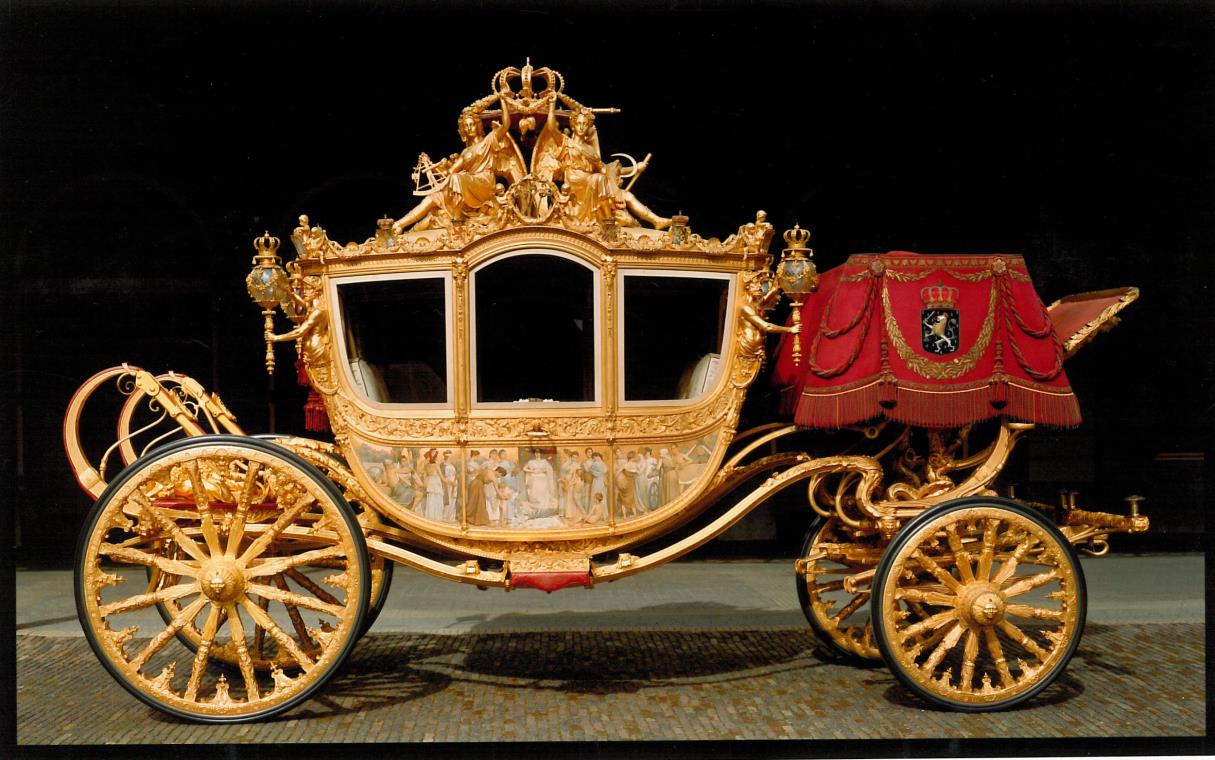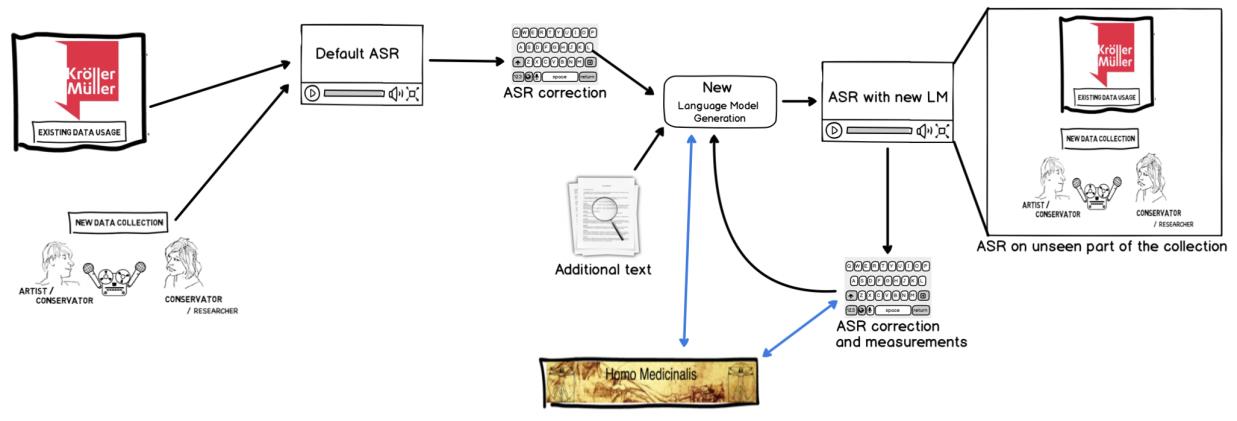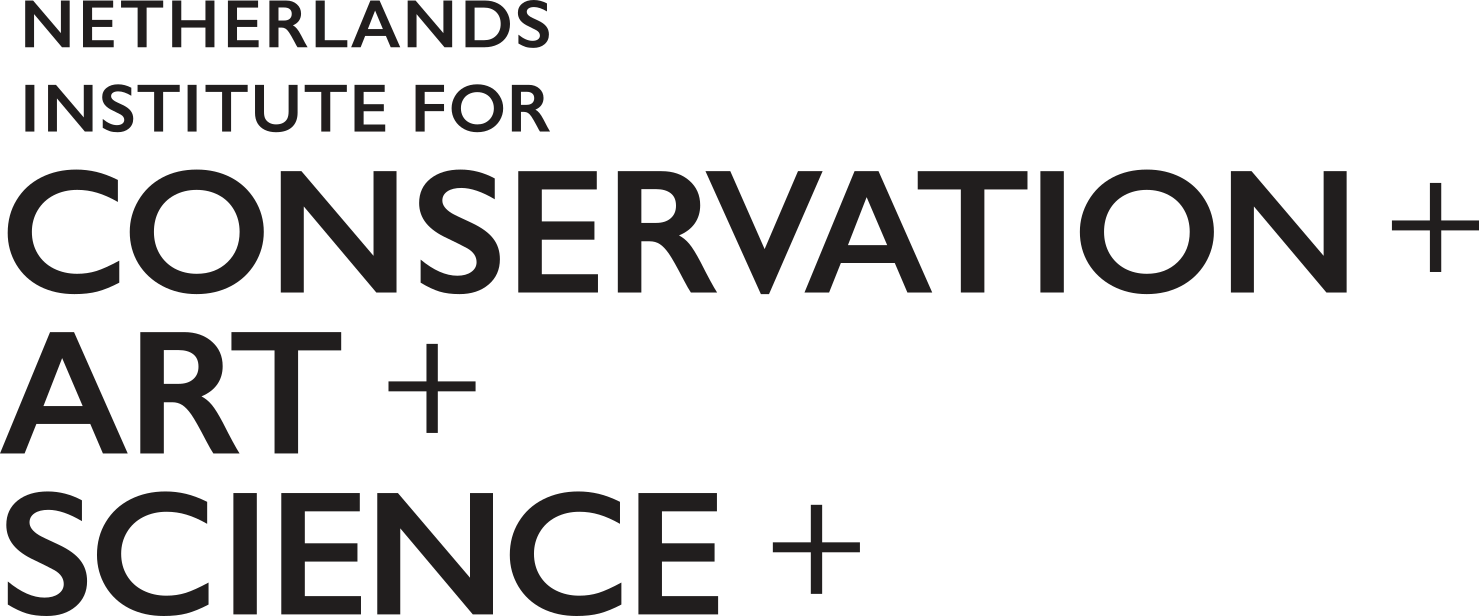We are pleased to announce two new projects that have been awarded funding from the Small Project Grants funding scheme. Find out more about the new projects through the links below:
► The Origin of the Gold Leaf of the Golden Coach
The Golden Coach, a gift from the Dutch people to queen Wilhelmina in 1898, is supposed to have been made of materials from Dutch (colonial) origin. It is an urban legend that the gold for the gold leaf originates from Suriname. At that time gold was imported from Suriname but also from South Africa (Verloop 1911, Brinck 1955).
The recent restoration of the Golden Coach and the exhibition in the Amsterdam Museum enables a thorough technical research and sampling. Several studies previously determined the provenance of early gold objects by analyzing their chemical composition and comparing that to possible gold sources (e.g. Leusch et al. 2018). To our knowledge, the origin of gold used to produce gold leaf was never studied due to the limited available material and low Pb content of refined gold. New ultra-sensitive methods pioneered and refined at the VU, now offer the possibility of analysis (Koornneef et al. 2014; D’Imporzano et al. 2020). The overall aim of the study is to trace the gold leaf back to Suriname or South Africa by analyzing the lead isotope ratios. In addition, the database of the chemical and Pb isotope composition of gold sources from Suriname and South Africa will be produced and made available for future research.

Golden Coach, produced by the Spyker factories Amsterdam, collection Royal Collections, The Hague.
► Artwork Biographies and Institutional Memory
Artworks in museum collections are managed and shaped by institutional policies and personal viewpoints. Oral History methodology can help to assess this socio-cultural perspective. However, the tools to facilitate this in conservation research are still lagging behind. The project ‘Artwork Biographies and Institutional Memory’ (Art_Bios_In_Me) is designed along two research lines addressing this problem. One explores obstacles and pitfalls in archiving and disclosing interviews to improve the museum workflow, while the other fosters technological advancements in transcribing this unique source material and disclosing it, preparing the material for digital humanities research.
The Kröller-Müller Museum (KMM) and the Cultural Heritage Agency of the Netherlands (RCE) will deliver case study material to assess the deposition infrastructure with Data Archiving and Networked Services (DANS), and carry out a feasibility study to adapt Automatic Speech Recognition (ASR) to the field of conservation with the Foundation for Open Speech Technology (FOST). Only with time-stamped transcripts, interviews become searchable – raising text-mining potential, cross-referencing, and other use of Artificial Intelligence (AI). The envisioned methodological and technological advancements in using Oral History methodology in conservation research will be of great advantage to technical art history, object diagnosis, conservation decision-making and analysis of cultural heritage at large.

Conservation language model generation workflow for ASR. New and existing interviews will be transcribed using Default ASR. The transcriptions will be manually corrected to get a 100% correct transcription. These corrected transcripts will be used to create and update the dedicated new Language Model (LM). This method is similar to the HoMed project to create a dedicated LM for medical interviews. ©Arjan van Hessen.
SMALL PROJECT GRANTS
The many cultural heritage collections in the Netherlands form an inexhaustible source of interesting research questions and conservation challenges. By tackling these, we can gain a better understanding of the material biography of heritage objects and use that knowledge to enrich the stories we tell about them and safeguard their future.
In order to unlock this research potential of and to stimulate research in and with Dutch heritage collections, NICAS launches a new permanent funding scheme to support small projects in which museums and other heritage collections collaborate with academic partners.
BUDGET AND DEADLINE
The annual budget for this funding programme will be at least €50.000, but will be augmented from other sources whenever possible.
Applicants can submit proposals all year, with decisions on funding being made twice a year. The decision on the next round of grants will be made in October/November, which means that all proposals that are submitted before 15 September 2021 will be reviewed for this round.
